The digital world, you know, is a place where information moves at incredible speeds, and sometimes, things happen that catch everyone's attention. One such event that has sparked a lot of conversation lately involves what many are calling the "waifukatt leak." It's a situation that has people talking about online content, personal boundaries, and how information spreads across the internet. So, what exactly is going on, and why does it matter to those of us who spend time online?
This particular incident, which has been widely discussed on various platforms, brings up some really important questions about digital safety and the responsibilities that come with sharing or consuming content online. It's a topic that, you know, touches on many different aspects of our connected lives, from the content creators themselves to the people who follow their work.
We're going to explore what this "waifukatt leak" is all about, what it might mean for individuals and communities online, and, you know, some ways we can all think about keeping our digital presence a bit more secure. We'll look at the buzz around it, the concerns it raises, and some general good practices for staying safe in a world where information can, quite frankly, move very, very quickly.
Table of Contents
- Who is Waifukatt? Exploring the Persona
- What is the "Waifukatt Leak"?
- The Ripple Effect of Online Content Incidents
- Digital Boundaries and Personal Space
- Community Discussions and Perspectives
- Safeguarding Your Online Presence
- Frequently Asked Questions
Who is Waifukatt? Exploring the Persona
Many online personas capture the interest of a wide audience, and Waifukatt is, you know, one such figure. This name is often linked with content creation, particularly in spaces where creators share their work with a dedicated following. The persona typically involves a specific style or theme that resonates with its audience, creating a distinct presence across social platforms.
The appeal of such personas often comes from their unique approach to content, which can range from artistic expressions to engaging discussions. People, you know, tend to connect with these online figures for various reasons, whether it's the entertainment they provide or the community they help build. It's a bit like following a favorite show or artist; there's a certain draw to their creative output and the world they present.
It's worth noting that an online persona is, in some respects, a public face, distinct from a person's private life. This distinction is pretty important when we talk about online events, as the persona is what the public sees and interacts with. The details shared about a persona are often curated, offering a glimpse into the creator's artistic vision or chosen online identity, so, you know, it's not always about personal facts.
Public Persona Details
While specific personal details about the individual behind the Waifukatt persona are not widely known or relevant to the public discussion of the leak, the persona itself has certain characteristics that define its online presence. These are, you know, the traits that followers typically associate with the Waifukatt identity.
| Aspect | Description (Public Persona) |
|---|---|
| Associated Platforms | Often seen on various social media and content-sharing sites. |
| Content Focus | Typically involves creative or entertainment-oriented material. |
| Audience Engagement | Known for interacting with followers and building a community. |
| Public Image | A specific aesthetic or theme that defines the persona's brand. |
What is the "Waifukatt Leak"?
The term "waifukatt leak" refers to an alleged incident where private content, seemingly connected to the Waifukatt persona, became accessible without proper permission. These kinds of situations, you know, often involve material that was never intended for public viewing, or was meant for a very specific, limited audience. It's a situation that, basically, causes a stir because it crosses a line of privacy that many expect to be upheld online.
When something like this happens, the content can spread really fast across various online spaces, like social media, forums, and file-sharing sites. This rapid sharing, you know, is a significant part of why these incidents get so much attention. It highlights just how quickly information can move once it's out there, even if it was shared without permission in the first place.
The specific nature of the content involved in the "waifukatt leak" is, you know, not something we'll detail here. What's more important to understand is the general concept of an unauthorized release of private material. It's a type of event that, sadly, occurs sometimes in the online world, and it raises a lot of questions about digital safety and respecting boundaries.
These sorts of unauthorized releases, you know, often begin with a single point of compromise, which could be anything from a security oversight to a malicious act. Once the content is out, it becomes incredibly difficult to contain or remove entirely from the internet. This is, in a way, one of the challenging aspects of living in such a connected age; information, once public, is hard to pull back.
The discussion around the "waifukatt leak" also touches on the concept of digital ownership and consent. Who has the right to share certain images or videos? When is it okay to repost something? These are, you know, pretty important considerations that come up every time an incident like this occurs. It's about understanding that digital content, even if it feels intangible, still carries real-world implications for the people involved, so, you know, it's not just about files.
The Ripple Effect of Online Content Incidents
When a situation like the "waifukatt leak" occurs, it doesn't just affect the individual or persona involved; it sends, you know, ripples through the wider online community. People start talking, opinions are formed, and the way we think about online privacy can shift, even if just a little. It's a moment that, you know, makes many people pause and consider their own digital habits.
One immediate effect is the conversation it sparks. Forums light up, social media feeds are filled with discussions, and news outlets might pick up the story. This chatter, in some respects, highlights the collective interest in online safety and the protection of personal content. It's a sign that, you know, people care about these issues, and they want to understand what happened and why.
Beyond the immediate discussion, such incidents can also influence how content creators manage their online presence. They might, you know, become more cautious about what they share, or they might look into stronger security measures for their accounts and data. It's a reminder that even for those who make a living online, there are always risks that need to be considered and, you know, managed very carefully.
For the audience, these events can also change how they interact with content. Some might become more aware of the source of information, questioning its legitimacy or whether it was shared with permission. This increased awareness is, you know, actually a positive outcome, encouraging a more thoughtful approach to what we view and share online. It's about being a bit more discerning, you know, with what you come across.
The broader impact also includes how platforms themselves respond. They might review their policies on content sharing, privacy, and user safety. This ongoing evolution of platform rules is, you know, partly driven by incidents like the "waifukatt leak," as companies try to create safer environments for their users. It's a continuous process of learning and adapting, really, to the challenges of the internet.
Digital Boundaries and Personal Space
The "waifukatt leak" really brings the idea of digital boundaries into sharp focus. Just as we have personal space in the real world, we also, you know, need to think about our personal space online. This means deciding what information we're comfortable sharing, with whom, and under what circumstances. It's about setting limits and, you know, expecting those limits to be respected.
For content creators, this is particularly important. Their work often blurs the lines between their public persona and their private life. They might share aspects of their daily routine or personal thoughts as part of their content, which can make it, you know, a bit tricky to define where the public persona ends and the private individual begins. This is, in a way, a constant balancing act for them.
The incident underscores the fact that once something is digital, its control can become, you know, somewhat tenuous. Even if content is shared privately, there's always a possibility, however small, that it could become public without consent. This is why, frankly, understanding and using privacy settings on various platforms is so important. It's a basic step, yet it can make a real difference.
Thinking about digital boundaries also means considering the consequences of oversharing. While it's tempting to share many things online, especially with friends or a close community, it's wise to, you know, pause and think about the potential reach of that information. Could it be misunderstood? Could it be used in a way you didn't intend? These are, you know, questions worth asking yourself.
Establishing clear personal rules for online interaction can help protect your digital space. This could involve being mindful of who you connect with, what permissions you grant to apps, and what kind of information you store in cloud services. It's about being, you know, proactive rather than reactive, trying to prevent issues before they arise. You can learn more about digital privacy on our site, and it's a topic that really matters.
Community Discussions and Perspectives
Following an event like the "waifukatt leak," online communities often engage in very active discussions. These conversations, you know, can reveal a wide range of viewpoints, from expressions of sympathy for the affected individual to debates about accountability and the ethics of sharing leaked material. It's a moment when collective values are, in a way, put to the test.
Some community members might focus on the need for stronger security measures and better platform moderation. They might argue that platforms have a greater responsibility to protect user data and prevent unauthorized sharing. This perspective, you know, highlights the desire for a safer online environment where individuals feel more secure in their digital interactions.
Others might emphasize individual responsibility, suggesting that users should be more cautious about what they share online, even in private settings. This viewpoint, you know, often comes from a place of wanting people to be empowered with knowledge about potential risks. It's about understanding that while platforms have a role, personal vigilance is also, frankly, pretty key.
There are also discussions around the impact on mental well-being for those who become targets of such leaks. The emotional toll can be, you know, quite significant, and communities often rally to offer support or to condemn the actions of those who perpetuate the unauthorized sharing. It's a reminder that behind every online persona, there's a person, and their feelings matter, so, you know, it's not just about content.
These community dialogues are important because they shape collective understanding and norms. They help to raise awareness about the seriousness of online privacy breaches and can, you know, potentially lead to positive changes in how people behave online and how platforms operate. It's a way for the online world to, in a sense, self-regulate and learn from its experiences, even the difficult ones.
Safeguarding Your Online Presence
In light of incidents like the "waifukatt leak," taking steps to safeguard your own online presence becomes, you know, even more relevant. Protecting your digital footprint is about being proactive and making informed choices about your data and interactions. It's a continuous effort, but one that's, you know, pretty essential in today's connected world.
One fundamental step is to use strong, unique passwords for all your online accounts. A password manager can, you know, really help with this, generating complex passwords and storing them securely. This simple habit can, frankly, prevent a lot of headaches down the line. It's a basic security measure, yet it's incredibly effective, you know, at keeping things safe.
Enabling two-factor authentication (2FA) wherever possible adds another layer of security. This means that even if someone gets your password, they'd still need a second piece of information, like a code from your phone, to access your account. It's a bit like having two locks on a door, which makes it, you know, much harder for unwanted visitors to get in.
Regularly reviewing your privacy settings on social media platforms and other online services is also, you know, a very good idea. Make sure you understand who can see your posts, your photos, and your personal information. Adjust these settings to match your comfort level, because, you know, what's public today might not be what you want public tomorrow.
Be cautious about clicking on suspicious links or downloading attachments from unknown sources. Phishing attempts are, you know, still a common way for malicious actors to gain access to your accounts or devices. If something looks too good to be true, or just a little bit off, it probably is, so, you know, trust your instincts on that.
Consider what you share online, even in private messages or groups. Remember that once content is shared, you lose a degree of control over it. Think about the potential implications before you post anything sensitive or personal. This isn't about fear, but about, you know, making thoughtful choices for your own digital well-being. For more practical advice on keeping your information safe, you can try these steps: Protecting Your Digital Information.
Finally, stay informed about common online threats and security practices. The digital landscape is always, you know, changing, and new risks can emerge. Following reputable tech news sources or security blogs can help you stay updated. It's about continuous learning, really, to keep your online life as secure as possible. This ongoing awareness is, you know, quite a powerful tool for everyone.
Frequently Asked Questions
What is the waifukatt leak about?
The "waifukatt leak" refers to an alleged incident where private content, which is apparently connected to the Waifukatt online persona, became publicly accessible without permission. It's a situation that, you know, involves unauthorized sharing of material that was not intended for wide distribution.
How do I stay safe from online leaks?
To stay safer online, it's wise to use strong, unique passwords and enable two-factor authentication on your accounts. You should also, you know, regularly check your privacy settings on social media and be careful about what personal information you share. Being mindful of suspicious links is, frankly, also very important.
Is sharing leaked content illegal?
Sharing content that has been leaked without the original owner's consent can, you know, have serious legal and ethical consequences. It often violates copyright laws, privacy rights, and platform terms of service. The specifics can vary based on the content and jurisdiction, but it's generally not a good idea to share such material.



Detail Author:
- Name : Oscar Hamill
- Username : pkeebler
- Email : oda.rogahn@hotmail.com
- Birthdate : 2003-07-16
- Address : 756 Jason Walks Lake Milesborough, NC 57744-7443
- Phone : 325-503-0320
- Company : Champlin-Shanahan
- Job : Illustrator
- Bio : Ipsa id quas non sed qui. Illum iste minus cum maiores ut beatae numquam reiciendis.
Socials
instagram:
- url : https://instagram.com/alphonso_berge
- username : alphonso_berge
- bio : Facilis rerum commodi dolor sint et. Consectetur omnis ipsum odit. Quis eos eius qui et animi.
- followers : 2529
- following : 688
twitter:
- url : https://twitter.com/bergea
- username : bergea
- bio : Quis pariatur rerum nisi unde est voluptatem. Dolor consectetur cupiditate eaque praesentium ea. Modi exercitationem odit et et. Omnis rerum provident cum et.
- followers : 3812
- following : 1108
linkedin:
- url : https://linkedin.com/in/alphonsoberge
- username : alphonsoberge
- bio : Voluptatem doloribus aut debitis aspernatur.
- followers : 6225
- following : 439
tiktok:
- url : https://tiktok.com/@aberge
- username : aberge
- bio : Odio consequatur ipsam non sed.
- followers : 6135
- following : 1341
facebook:
- url : https://facebook.com/alphonso_xx
- username : alphonso_xx
- bio : Sunt veniam reiciendis corporis culpa atque incidunt et.
- followers : 5368
- following : 1976